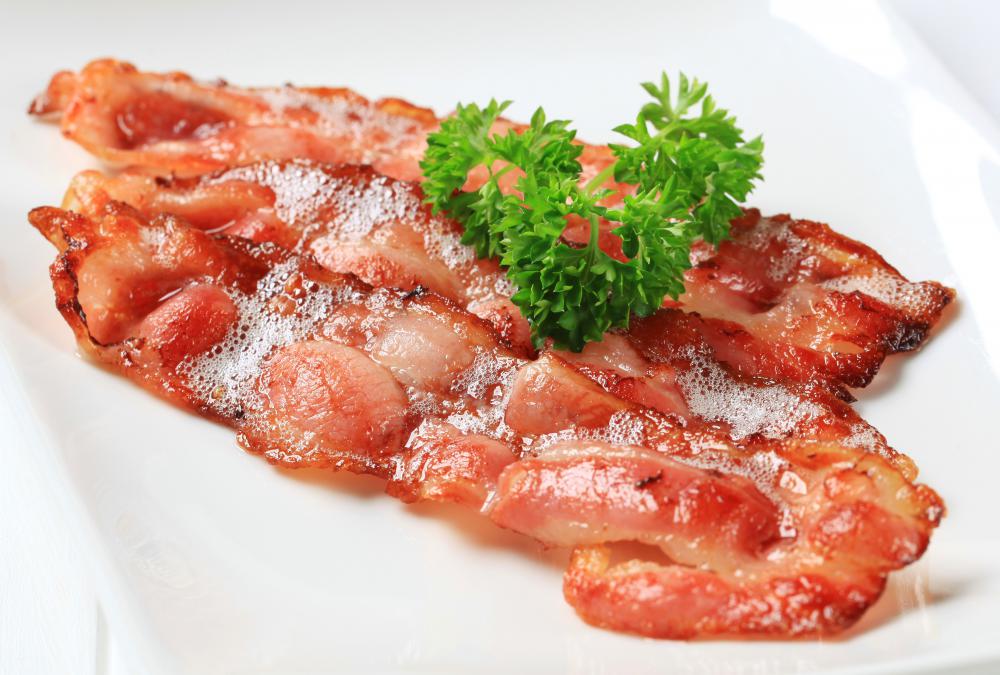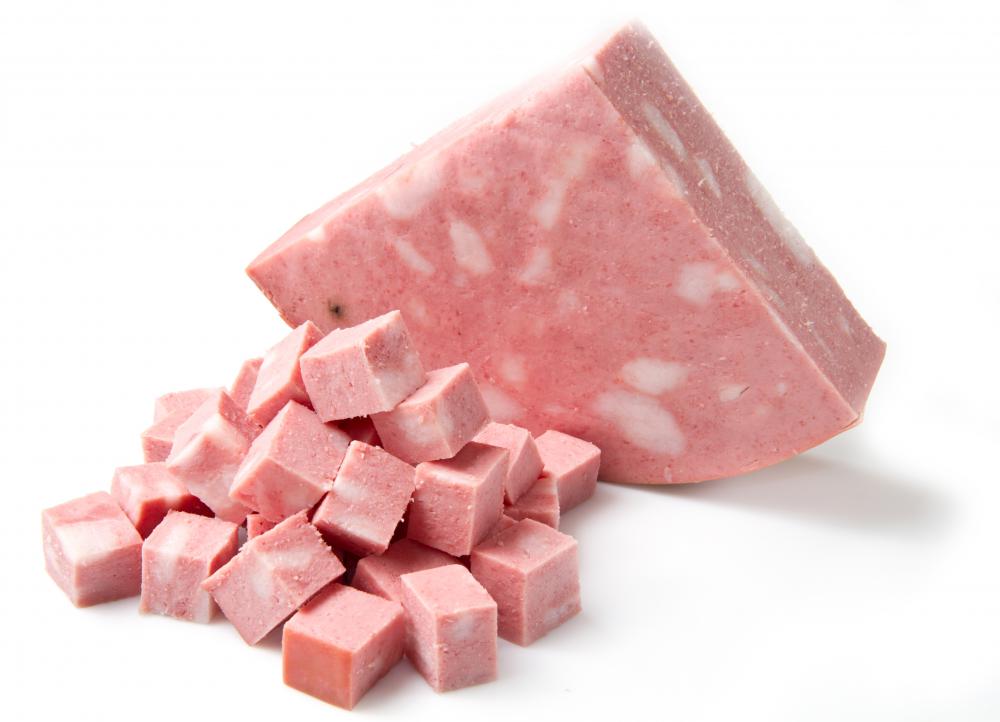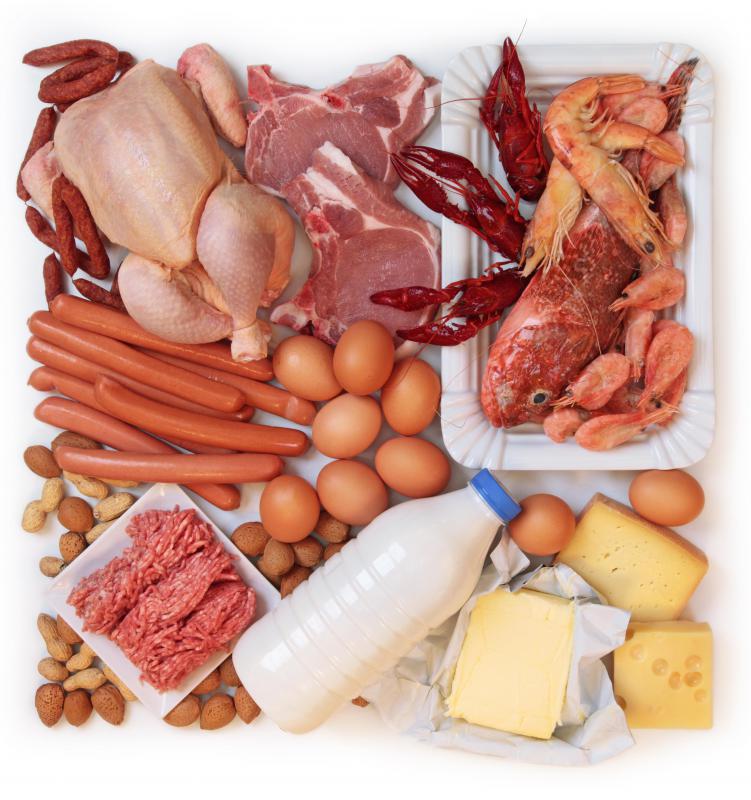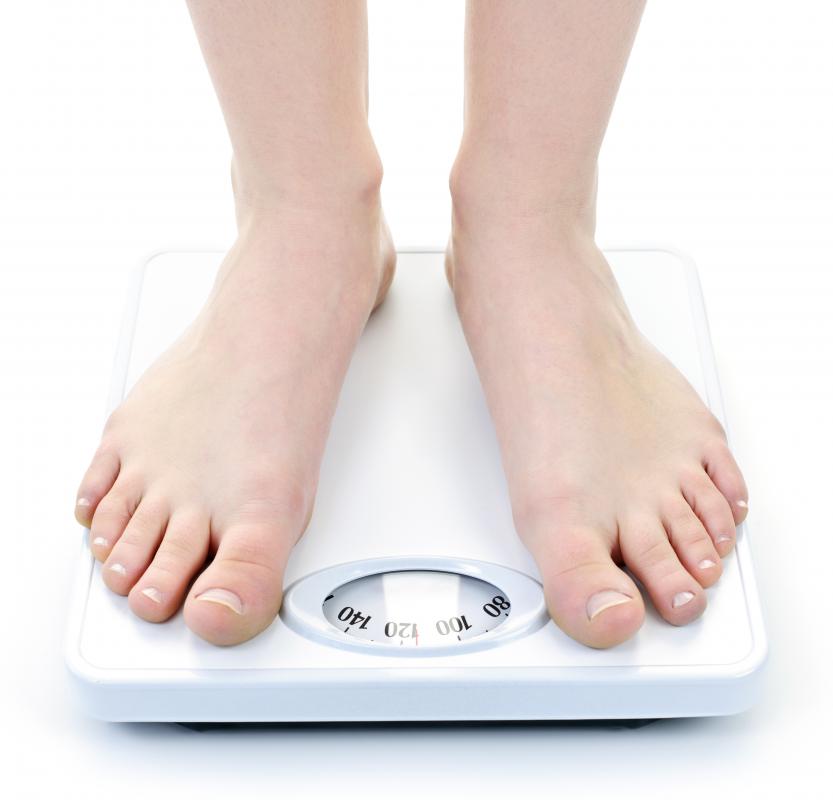At WiseGEEK, we're committed to delivering accurate, trustworthy information. Our expert-authored content is rigorously fact-checked and sourced from credible authorities. Discover how we uphold the highest standards in providing you with reliable knowledge.
What Are the Most Common High-Protein Diet Side Effects?
High-protein diets consist of consuming an increased amount of protein to lose weight or gain muscle. Aside from weight loss, high-protein diet side effects have the potential to damage a dieter’s health and lead to long-term consequences. A high-protein diet can increase blood pressure and cholesterol levels as well as deplete the amount of necessary nutrients in the body. Rapid weight loss can also damage the metabolism and kidneys.
Protein is available in a variety of sources, including soy beans, eggs, nuts and meat. Many of these foods are higher in saturated fat, because most are derived from animal sources. Increasing animal fats in the diet raises blood cholesterol overtime. This increases the risk of blocked arteries.

Hypertension, or high blood pressure, is associated with high-protein diets. Foods derived from animal products tend to have higher amounts of sodium. Examples include red meat, bacon, deli meats and ham. Consuming more sodium-rich foods significantly increases the risk of developing hypertension and can worsen pre-existing high blood pressure.
High-protein diet side effects also affect the kidneys. Kidneys are overworked from consuming too much protein. This can be detrimental if a dieter has pre-existing kidney problems. The kidneys naturally help the body eliminate protein wastes. As the amount of protein increases, the kidneys have a difficult time keeping up with waste management.

Following a high-protein diet over a long period of time will almost inevitably lead to chronic diseases of the heart and kidneys. Stroke and type 2 diabetes are other diseases associated with this type of diet. Dieters might develop cancer as a result of not getting enough daily nutrients.
Some high-protein diets also restrict the amount of carbohydrates consumed in conjunction with increased protein intake. Carbohydrates are prevalent in various types of heart-healthy foods, including some fruits, vegetables, whole grain bread, oatmeal, potatoes and brown rice. Such foods also have a high fiber content that creates bulk in the intestinal tract and reduces the risk of heart disease. Fiber-rich foods help level out blood pressure and increase vital minerals, such as magnesium and potassium. Limiting fiber and essential minerals sets the body up for hypertension.

High-protein diet side effects might ultimately cause weight gain in the long term. Losing a large amount of weight too quickly can disrupt one's metabolism. The metabolism is responsible for converting calories and excess fats into energy. Rapid weight loss decreases the metabolism to such a low level that the body can’t burn excess calories on its own. This results in weight gain.

Many health experts believe that high-protein diet side effects outweigh the benefits of increased protein intake. Most nutritionists recommend that weight loss hopefuls choose a balanced diet to lose weight instead of a high-protein diet. Results might not be seen as fast, but they are more likely to stick. A balanced diet might also ensure that a person maintains optimal health while achieving his or her weight loss goals.
AS FEATURED ON:
AS FEATURED ON:
















Discussion Comments
@talentryto- I agree with you. I think that people who want to eat high-protein diets for weight loss or for physical training have to make sure that their diet plans are balanced. Eating lean protein along with plenty of fruits and vegetables and a little bit of whole grain bread and pasta is a much healthier diet plan in my opinion.
I have tried eating a high-protein diet to lose weight, and I didn't find it to be very helpful. I think that this diet plan is not only bad for your health in the long run, but may also cause you to gain wait if you choose protein that has a lot of fat content.
Post your comments